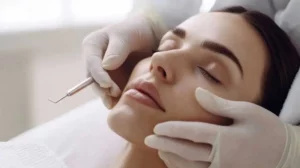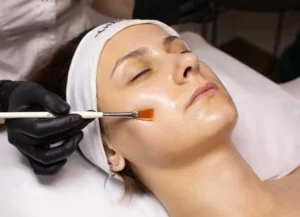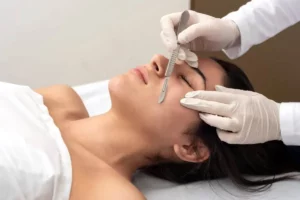Are you passionate about skincare and eager to make a difference in the lives of cancer patients? Becoming an oncology esthetician might be the perfect career path for you. This specialized field combines beauty treatments with medical knowledge to provide safe and comforting care for cancer patients. This comprehensive guide will explore the journey to becoming an oncology esthetician, including the necessary training, certification, and skills to excel in this rewarding profession.
Understanding the Role of an Oncology Esthetician
Oncology estheticians are skin care professionals who specialize in working with cancer patients. They provide customized treatments that address the unique skin-related side effects of cancer therapies, such as radiation and chemotherapy. These side effects can include extreme dryness, sensitivity, rashes, and skin texture and color changes.
The primary goal of an oncology esthetician is to improve the quality of life for cancer patients by:
- Offering safe and gentle skincare treatments
- Providing emotional support and comfort
- Educating patients on proper skincare during treatment
- Collaborating with medical professionals to ensure comprehensive care
The Importance of Specialized Training
Standard esthetician training does not typically cover the specific needs of cancer patients. This is why oncology esthetician training is crucial. It equips professionals with the knowledge and skills to:
- Understand how cancer treatments affect the skin
- Identify potential contraindications for treatments
- Modify standard skincare protocols to suit individual patient needs
- Communicate effectively with patients and medical teams
Steps to Becoming an Oncology Esthetician
1. Complete Basic Esthetician Training
The first step in your journey is to become a licensed esthetician. This typically involves:
- Enrolling in a state-approved cosmetology or esthetics program
- Completing the required hours of training (varies by state)
- Passing both written and practical exams
- Obtaining your esthetician license
2. Gain Experience as a General Esthetician
Before specializing, working as a general esthetician for a few years is beneficial. This experience will help you:
- Perfect your skincare techniques
- Develop strong client communication skills
- Build a solid foundation in skin care products and treatments
3. Pursue Specialized Oncology Esthetician Training
Once you have some experience, you can pursue specialized training in oncology esthetics. Look for programs that offer:
- Comprehensive education on cancer and its effects on the skin
- Hands-on training with cancer patients
- Instruction on modifying treatments for compromised skin
- Information on the latest research and best practices in oncology skincare
Recommended Training Programs
At The Skin Academy, we partner with Oncology Spa Solutions® to provide top-notch training for aspiring oncology estheticians. This program offers:
- In-depth coursework on cancer biology and treatment side effects
- Practical skills for working with immunocompromised clients
- Certification upon completion of the program
4. Obtain Certification
While not always mandatory, certification can demonstrate your expertise and commitment to the field. Look for reputable organizations that offer oncology esthetician certification, such as:
- The International Oncology Esthetics (IOE) certification
- The Society for Oncology Massage (S4OM) certification
5. Continue Your Education
The field of oncology and skincare is constantly evolving. To provide the best care for your clients, commit to ongoing education by:
- Attending workshops and conferences
- Participating in online courses and webinars
- Staying updated on the latest research in oncology skincare
Skills and Qualities of a Successful Oncology Esthetician
Beyond technical knowledge, successful oncology estheticians possess:
- Empathy and compassion
- Excellent communication skills
- Attention to detail
- Ability to work in a medical setting
- Flexibility to adapt treatments to individual needs
- Emotional resilience
Career Opportunities for Oncology Estheticians
As an oncology esthetician, you may find employment in various settings, including:
- Cancer treatment centers and hospitals
- Specialized oncology spas
- Private practices working alongside oncologists
- Wellness centers focusing on integrative care
Some oncology estheticians also choose to start their practices, offering mobile services to patients who may have difficulty traveling.
The Impact of Oncology Esthetics
Oncology estheticians play a vital role in the holistic care of cancer patients. By providing safe and nurturing skincare treatments, they help:
- Alleviate treatment side effects
- Boost patients’ self-esteem and confidence
- Provide a sense of normalcy during a challenging time
- Improve overall quality of life
Conclusion: A Rewarding Career Path
Becoming an oncology esthetician is a journey that requires dedication, compassion, and a commitment to ongoing learning. While the path may be challenging, the rewards of positively impacting cancer patients’ lives are immeasurable.
If you’re interested in pursuing a career as an oncology esthetician, The Skin Academy is here to support you. Our partnership with Oncology Spa Solutions® ensures you receive the highest quality training to excel in this specialized field.
Are you ready to take the first step towards a fulfilling career as an oncology esthetician? Contact The Skin Academy today to learn more about our training programs and how we can help you achieve your goals in oncology esthetics.







